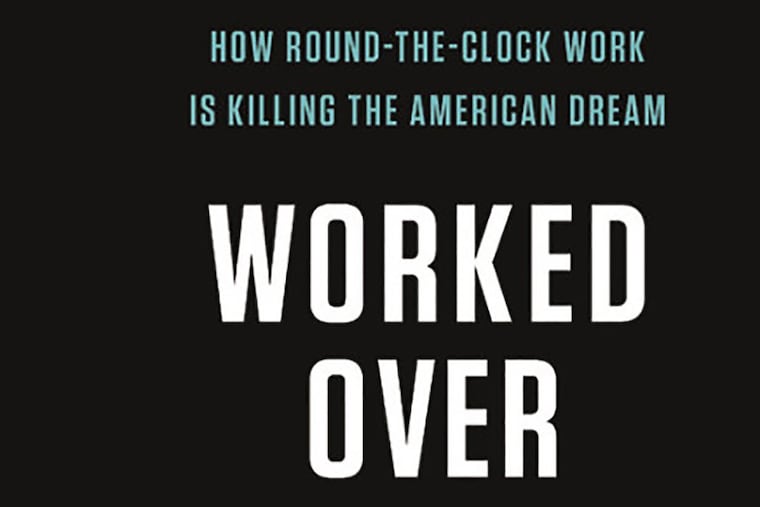A call to revolutionize the workplace — by reducing working hours | Book Review
Author Jamie K. McCallum argues that labor’s next big battle may be over not wages but time, an overlooked working condition that's a commodity in its own right.

Worked Over: How Round-the-Clock Work Is Killing the American Dream
By Jamie K. McCallum
Basic. 272 pp. $28.
Reviewed by Sheila McClear
Today, work time is scrambled for many. Employees, especially in the retail and service industries, may not get to work eight hours every day, even if they want to. Having shifts cut or extended in the middle of the workday is the norm. Schedules in the traditional sense are increasingly a thing of the past and are instead often dictated by algorithms, which can result in wonky hours, with employees sometimes given two hours of work one day and eight the next.
All of this makes it challenging to plan a life — or receive a reasonably balanced paycheck that can reliably pay the bills. The loss of agency over work time is a large part of what’s addressed in Jamie K. McCallum’s Worked Over.
McCallum argues that labor’s next big battle may be over not wages but time, an overlooked working condition that takes on many forms, from retail workers fighting for fair scheduling to gig workers who must be “always on” to the pace of work that industrial laborers contend with.
Further complicating matters, having stable employment is often tied to receiving vital services such as health care. It’s all too easy to fall through the flimsy social safety net.
An academic, professor of sociology, and author of several other books about labor, McCallum argues that those who control labor control time, which he sees as a commodity in its own right. And he presents some ideas that could help us get our time back.
One is flexible work arrangements, or job sharing. For example, when times are bad, employers and employees could agree to, say, cut workers’ days to four per week instead of laying off some coworkers. That way, people keep their jobs and the economic losses are distributed more widely.
McCallum also proposes a “universal basic services” platform, which would provide free access to health care, child care, transportation, shelter, and more. The goal is to separate these vital services from work so that if someone loses their job — or can’t currently work — they can still care for their family or themselves.
His central goal is to reduce working hours outright. He advocates a movement to shrink our time on the clock while reducing pay barely or not at all, although he doesn’t quite explain how that would work. The ideal is not a country that hardly works, but one where employees work less and have more control over their working time.
Do all of McCallum’s ideas have enough fuel to fly? Maybe some, but others not so much.
The universal basic services proposal, for example, seems to rely on a socialist government that we don’t have. As for reducing working hours, it would be, he admits, a long and difficult struggle requiring much solidarity among workers who have not yet been radicalized to that cause. Still, American labor needs bold ideas like those McCallum offers.
From the Washington Post.